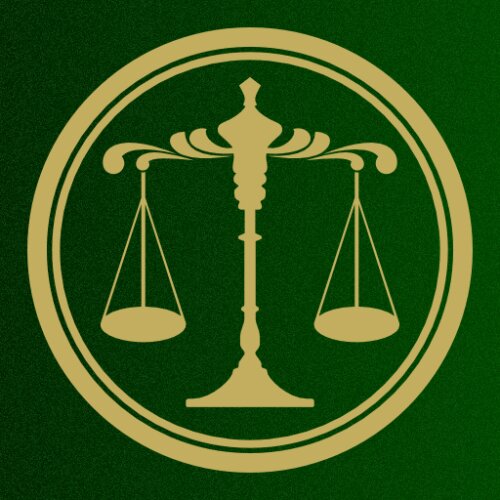Best Constitutional Law Lawyers in Poland
Share your needs with us, get contacted by law firms.
Free. Takes 2 min.
Or refine your search by selecting a city:
List of the best lawyers in Poland
About Constitutional Law in Poland
Constitutional Law in Poland serves as the backbone of the legal system, encompassing the core principles and rights that govern the country. The 1997 Constitution of the Republic of Poland is the primary document that lays out the governmental structure, the separation of powers, and the fundamental rights of citizens. It establishes the roles of various state organs, such as the Sejm (the lower house), the Senate, the President, and the Council of Ministers. Additionally, it enshrines key rights and freedoms, including the right to a fair trial and freedom of speech. Understanding this legal framework is crucial for anyone navigating legal issues related to constitutional law in Poland.
Why You May Need a Lawyer
There are several scenarios where individuals or entities might require the expertise of a constitutional lawyer in Poland. Common situations include:
- Challenging legislation or governmental actions as unconstitutional.
- Defending basic human rights and freedoms when they are perceived to have been violated.
- Advocating in cases of election disputes or political rights infringements.
- Interpreting constitutional provisions and their application to specific legal matters.
- Assisting in litigation concerning local authorities or the central government.
Local Laws Overview
Constitutional law intertwines with various local laws in Poland, creating a complex legal landscape. Key aspects include:
- The principle of judicial independence, ensuring that courts can operate without undue government influence.
- Procedures for constitutional review, allowing for the adjudication of laws or regulations suspected of contravening the Constitution.
- The role of the Constitutional Tribunal, which is vested with examining the constitutionality of legislative acts and international agreements.
- Provisions on local self-government, which guarantee administrative independence at different levels of local administration.
- The protection of individual rights and the conditions under which these rights can be lawfully restricted.
Frequently Asked Questions
What is the role of the Constitutional Tribunal in Poland?
The Constitutional Tribunal is crucial for safeguarding the supremacy of the Constitution by evaluating whether laws and other legislative acts conform to constitutional provisions.
How are human rights protected under Polish Constitutional Law?
Human rights in Poland are primarily protected under the Constitution, which stipulates various rights and freedoms like freedom of speech, the right to privacy, and protection against discrimination.
Can Polish constitutional law influence European Union law?
As an EU member, Poland's constitutional law interacts with EU law. While EU law takes precedence, Poland's Constitution guides how EU laws are implemented locally.
What are some common constitutional law disputes in Poland?
Typical disputes involve governmental actions infringing on privacy rights, electoral laws, freedom of assembly, and legality of new legislation under constitutional guidelines.
How does one initiate a constitutional complaint?
Citizens can bring a constitutional complaint to the Tribunal if they believe their constitutional rights are violated by a final decision of a public authority.
What is the principle of proportionality in Polish Constitutional Law?
This principle ensures that any restrictions on individual freedoms must be necessary, appropriate, and proportional to the intended aim.
How do Polish courts interpret ambiguous constitutional provisions?
Polish courts refer to the Constitution's preamble, legislative history, previous Tribunal verdicts, and legal commentaries for interpretation.
What is separation of powers in the context of Polish Constitutional Law?
Separation of powers divides state authority into three branches: executive, legislative, and judicial, each with distinct powers and responsibilities.
What are the rights of minorities under the Polish Constitution?
The Constitution affords minorities rights to preserve their language, culture, and identity, alongside participation in cultural, educational, and community activities.
How can constitutional law cases affect ordinary citizens?
Rulings can influence public policies, personal freedoms, government regulations, and citizens' everyday interactions with state authorities.
Additional Resources
For those seeking further understanding or assistance, consider consulting the following:
- The Constitutional Tribunal's official publications and website for legal summaries and case law.
- Governmental organizations such as the Ministry of Justice for official legal guidance.
- Legal aid organizations that provide pro bono services for individuals requiring assistance.
- Publications by academic institutions and think tanks focusing on constitutional matters in Poland.
Next Steps
If you believe you may need legal assistance in the area of constitutional law, consider the following steps:
- Identify the specific constitutional issue or rights that pertain to your situation.
- Gather any documents, evidence, and information relevant to your case.
- Consult with a qualified constitutional lawyer to evaluate your legal options.
- Consider reaching out to non-governmental organizations for additional support and resources.
- Prepare for possible legal proceedings by understanding your rights and potential outcomes.
With careful preparation and expert legal guidance, you can navigate the complexities of constitutional law in Poland effectively.
Lawzana helps you find the best lawyers and law firms in Poland through a curated and pre-screened list of qualified legal professionals. Our platform offers rankings and detailed profiles of attorneys and law firms, allowing you to compare based on practice areas, including Constitutional Law, experience, and client feedback.
Each profile includes a description of the firm's areas of practice, client reviews, team members and partners, year of establishment, spoken languages, office locations, contact information, social media presence, and any published articles or resources. Most firms on our platform speak English and are experienced in both local and international legal matters.
Get a quote from top-rated law firms in Poland — quickly, securely, and without unnecessary hassle.
Disclaimer:
The information provided on this page is for general informational purposes only and does not constitute legal advice. While we strive to ensure the accuracy and relevance of the content, legal information may change over time, and interpretations of the law can vary. You should always consult with a qualified legal professional for advice specific to your situation.
We disclaim all liability for actions taken or not taken based on the content of this page. If you believe any information is incorrect or outdated, please contact us, and we will review and update it where appropriate.
Browse constitutional law law firms by city in Poland
Refine your search by selecting a city.
















